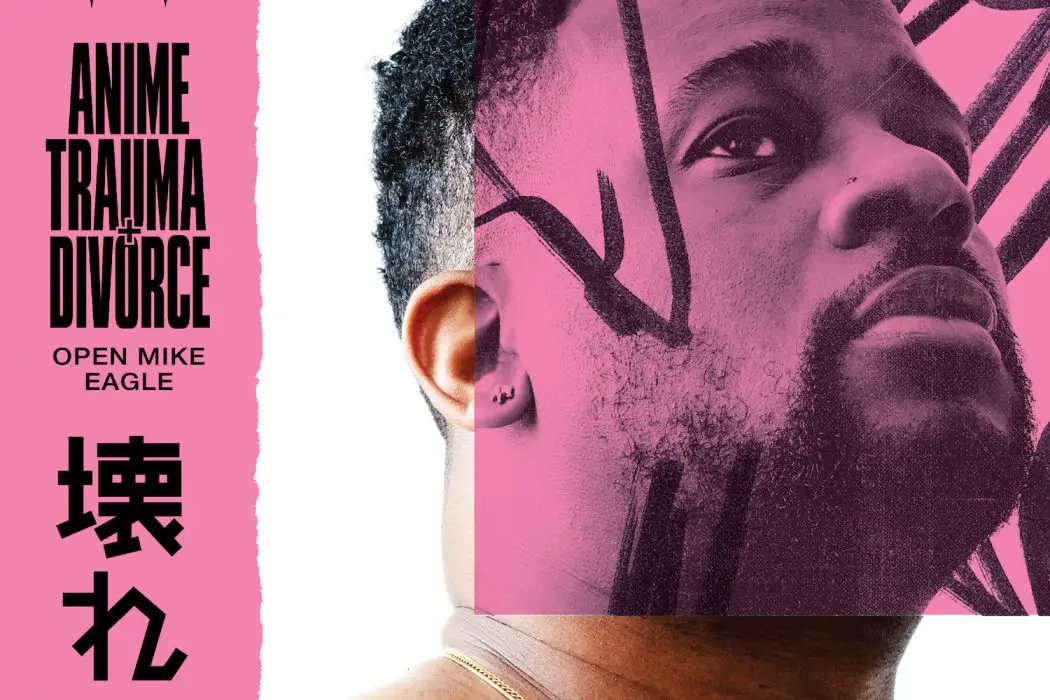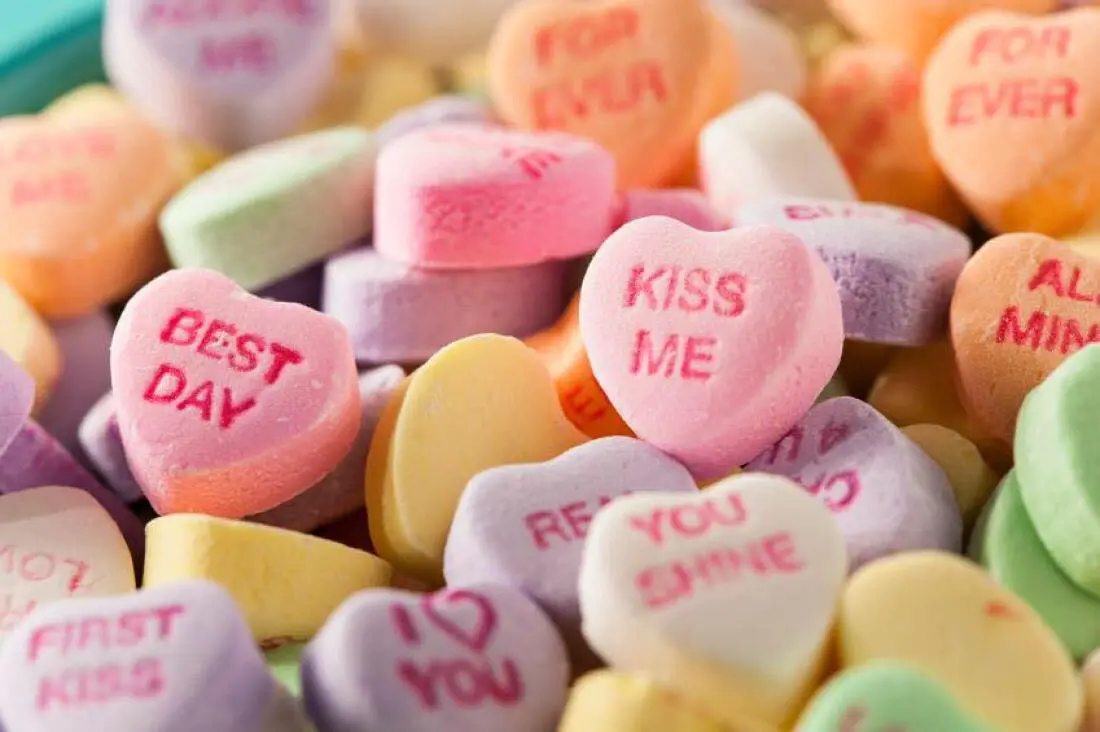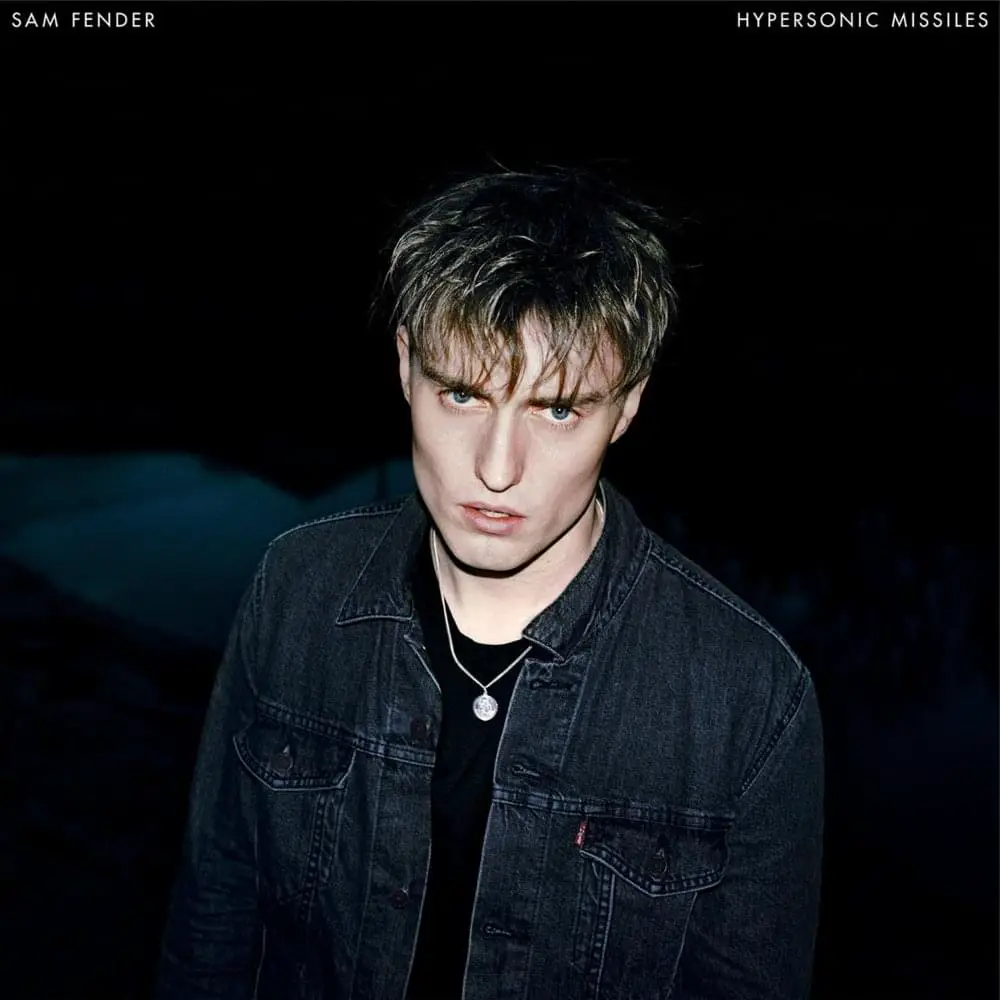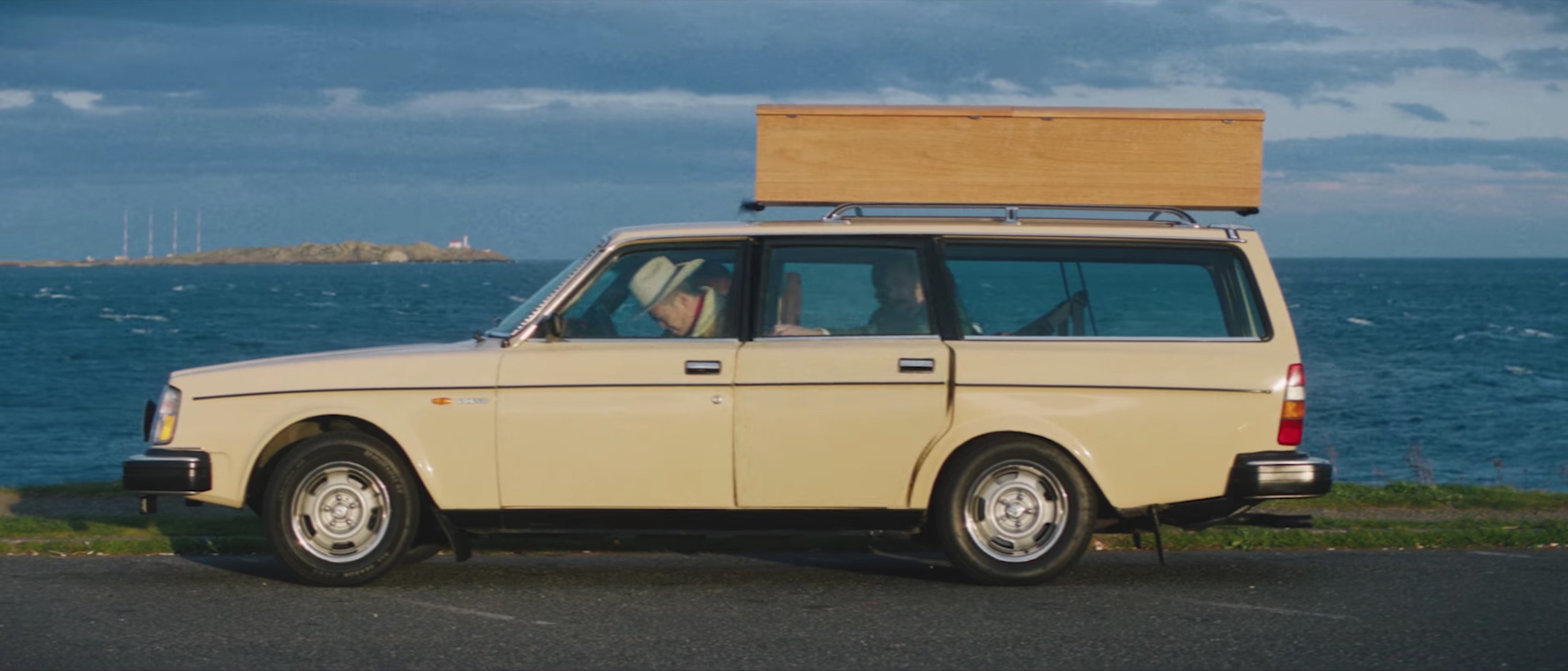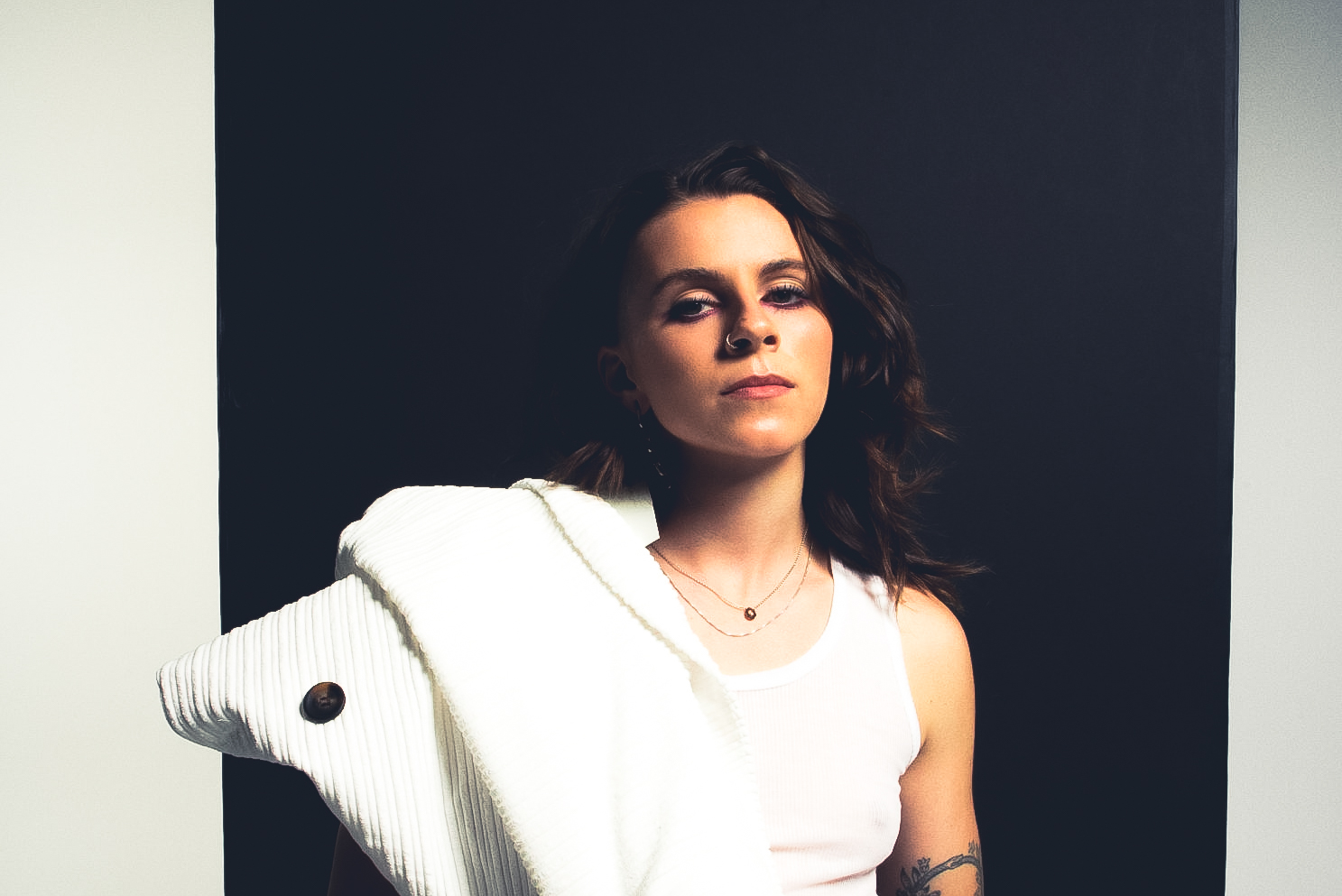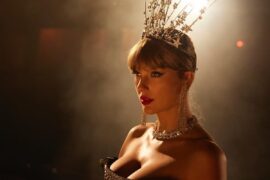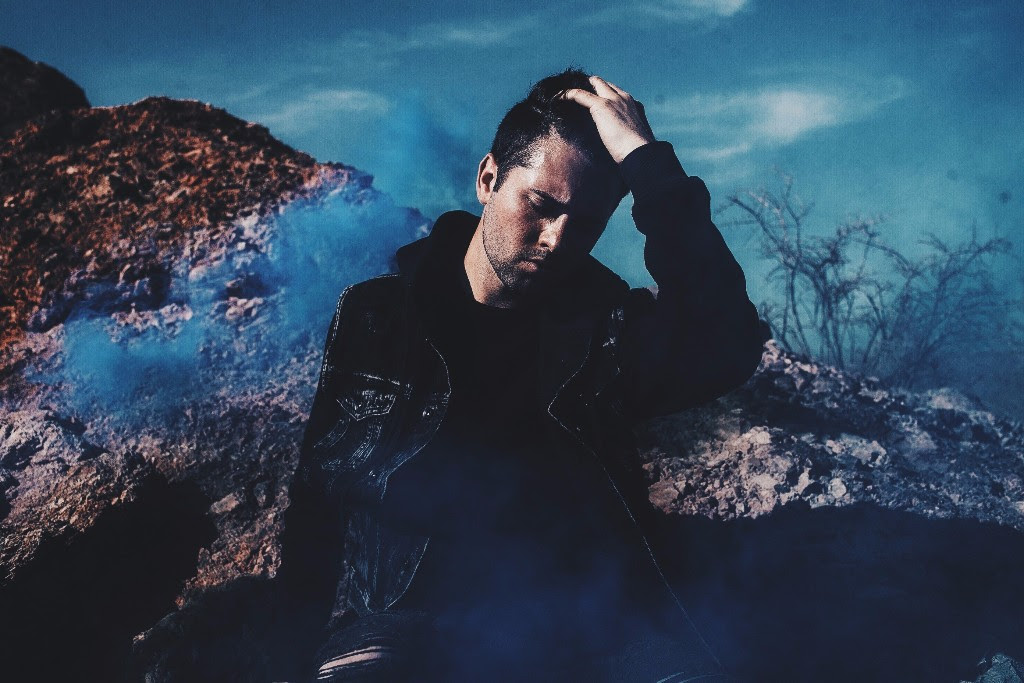Rapper Open Mike Eagle discusses his new album ‘Anime, Trauma and Divorce’, how anime and Kurt Vonnegut inspire his work, and processing trauma.
‘Anime, Trauma and Divorce’ – Open Mike Eagle
In the middle of track seven of Anime, Trauma and Divorce (out October 16, 2020 via Auto Reverse Records), Open Mike Eagle quietly murmurs, “It’s October and I’m tired.”
His voice is surrounded by near silence and it’s almost prayerful. Listening to it in October 2020 felt like both a gut punch and hug, a chilling acknowledgment of the year we’ve all had. But Eagle wasn’t talking about this October; last year, his new comedy music show was unexpectedly cancelled, friendships dissolved, and his 14-year marriage fell apart. Out of grief and disappointment came a breakup album, but one that only he could create. As a rapper and podcaster, Eagle is concerned with connection – with pop culture, with his own brain, with other people. His albums are highly referential art hip-hop, filled with sly wordplay and darkly funny jabs at things in society he’s “lowkey upset with.”

But on Anime, Trauma and Divorce, Eagle himself is laid bare. It’s right there in the title. Through the lens of anime series like Jojo’s Bizarre Adventure and Neon Genesis Evangelion, he attempts to process the losses and changes of his past year. He is self-deprecating and clever, introspective and funny. There’s the muted and woozy “Bucciarati” with Kari Faux, referencing a character from Jojo who has the power to create zippers on (read: repair) anything. “The Black Mirror Episode,” one of the more straightforward songs, has Eagle repeatedly wailing, “The Black Mirror episode ruined my marriage!” in such a melodramatic tone that you almost want to laugh.
There’s the self-insert fanfiction “I’m a Joestar (Black Power Fantasy),” where Eagle places himself into a Black version of the powerful family from Jojo’s Bizarre Adventure. The album’s strongest moments are in its transitions and juxtapositions; Eagle’s ability to float between comedy and understated tragedy is what makes this album so compelling.

There is an intentional discomfort created with every track. “Everything Ends Last Year,” with the almost whispered line “It’s October and I’m tired,” functions like the eye of the storm.
Stumble into November knowing goddamn well
I can’t make nothing close to this tender
Can’t fade, can’t accelerate
So pitch me into that blender
Regardless where the sun is,
I’m my own personal winter
I’m cold, I think I’m cold
I’m just tryna remember (just tryna remember)
It’s October and I’m tired
We thought we were so clever
Just put me on that TV screen,
cause pop culture’s forever
We did it, we do it
If everybody’s assuming, I did too cause I’m human
We heard we wasn’t performing, we heard it wasn’t resuming
And it ended (it fuckin ended just like that)
It’s October and I’m tired
The fantasy pulls back to show the exposed wires of Open Mike Eagle’s pain and exhaustion.
But it’s this honesty that’s so beautiful, and it’s what makes Anime, Trauma and Divorce one of the best albums of the year.
“[The album] kind of reflects my journey in therapy and isolating original trauma as through lines to a lot of the events that have shaped that year for me, and then goes back and forth between confronting things and dissociating.”
— —
:: stream/purchase Open Mike Eagle here ::
A CONVERSATION WITH OPEN MIKE EAGLE

Atwood Magazine: This album was recorded before the shutdown and the events of this summer, but so much of it takes on a new context after this year. I got chills the first time I heard “It’s October, and I’m tired.” Obviously, you couldn’t have predicted this. How has your relationship to this album changed over the course of this year?
Open Mike Eagle: It was always going to be a difficult thing for me to try to pull off because I’m not accustomed to speaking about myself in such a candid manner, but it took on another level of difficulty when I realized that things were going to be bad for everybody. By the time it came out, apart from just being uncomfortable, it started to feel a little self indulgent to try to treat it as a product during these times when it really felt personal to me.
I definitely took a little bit of took a little bit of…I wouldn’t say inspiration, but I noted that in Fiona Apple’s album, even though it wasn’t written about right now, there were a lot of elements in it that resonated with people. I was thinking that maybe mine could do the same and make me feel better about putting it out in this space of time.
Hip-hop is such a storytelling genre, but different rappers use that so differently. How do you conceptualize storytelling in your genre and in your art?
Open Mike Eagle: I put myself in my music a lot. Part of the value of hip-hop to me is in the individual perspective and it’s kind of where I’ve always aimed. I’ve always wanted to triple down on the uniqueness of the individual. So it is a lot of first person for me because a lot of it is about my thoughts, but historically, it hasn’t always been about how I really feel about things that are personal to me. A lot of it has been aiming at the world, rather than talking about myself too much.
This album feels like a story straight through. Is there a chronology to it?
Open Mike Eagle: There’s a narrative arc to it, but I don’t think it’s chronological. It kind of reflects my journey in therapy and isolating original trauma as through lines to a lot of the events that have shaped that year for me, and then goes back and forth between confronting things and dissociating.

Having put out this album and knowing that you would likely talk about it publicly, what kind of conversation did you have with yourself about what was going to make it onto the record and what wasn’t?
Open Mike Eagle: I often make songs that speak to my feelings or darkness or difficulties that I’ve been dealing with in a more overt way. Typically I’ll have an album laid out, and I see those songs and I take them off the album. They would end up in this folder I have of songs that I’m like, “This is a little much,” in terms of me being vulnerable in the context of whatever project that was. In this album, my entire approach was based around songs with that level of discomfort. It was almost flipped to where I ended up taking a song off this album early on because it wasn’t personal enough. It felt too much like an exhibition, or just like a whimsical flight of fancy.
A lot of the production adds to this kind of disorienting feeling the album has, like that panning of your voice on the second verse of “Bucciarati.” How did you and the producers land on these ideas?
Open Mike Eagle: So, this was kind of the overall process of songs: I had people who I was getting beats from and I would write songs to these beats. When I had what I thought was the collection of songs that I was going to put on the album, I took all of these songs to Jackknife Lee, the [executive] record producer. A lot of the choices like you just described with “Bucciarati” were Jacknife Lee choices – him kind of following the themes of the verse. We had a conversation about every choice. He was very understanding about what it was I was trying to do with the songs and the lyrics so that anything he was doing would be additive and not a distraction.
Your work is so tied to pop culture, which I feel like a lot of people try to incorporate into their music, but often to little effect. How do you make it work for you?
Open Mike Eagle: A lot of my aesthetic is about wanting to emphasize the importance of the individual’s perspective. What that means for me is that at every opportunity, I want to really give a reference to what my brain does. My brain is a byproduct of my experiences on Earth, some of which I can control, some of which I can’t, but all this stuff goes into making me who I am. I always want to show reverence and deference to my train of thought, wherever it wants to go. I’ve grown up consuming massive amounts of television and comic books and movies and cartoons. These things live in my mind. So when I make a reference, it’s not necessarily me reaching for something; it’s like walking into a room and noting what’s there. To me, the exciting thing is to be very specific about what’s there, to the best of my ability. I think there’s a lot of pop culture in my work, but it’s not necessarily something I’m deciding that I’m going to do before I start.
I’ve grown up consuming massive amounts of television and comic books and movies and cartoons. These things live in my mind. So when I make a reference, it’s not necessarily me reaching for something; it’s like walking into a room and noting what’s there.
The first time I heard of you was when you did the Adventure Time podcast, The Conversation Parade. I remember thinking at the time that you made this colorful, quirky, weird cartoon sound like it had so much more depth than I think people thought it did.
Open Mike Eagle: You know how you just do something, and you don’t know how good it’s going to go? And you don’t know how important it’s going to be, but you do it? I think it was just me and John Moe talking on Twitter, saying, “We should do that, because it’s easy to do.” We both loved the show, we both had these personal connections to it. We never thought that it would have a big impact, but people really dug it a lot. It was a great joy of my life to be able to talk about that show and talk to the creators and voice actors and really get access to that world. I guess in my experience of cartoons, and just the television landscape in general, you don’t often get the opportunity to have a show so rich and go to so many places and be so – I want to say humanist, which may sound weird because there’s only one human [laughs], but it’s the perspective in the way it treats characters and the way they treat individuals. I just thought it was an amazing thing.
Jumping off of that, tell me about your relationship to anime and its relationship to this album.
Open Mike Eagle: You know, my relationship to anime is always changing. I want to say it’s complicated. But I think that’s just because there are so many different kinds of anime that I relate to in a bunch of different ways. The thing that’s most exciting about it for me, typically, is that there’s space within anime to explore real trauma in characters. A lot of times, the way these shows start is that you’ll have something that feels almost like a slice of life and it feels really relatable. And then something incredibly awful will happen. What I like about anime is that oftentimes, they’ll use science fiction as a way to explore trauma. So rather than you know, someone’s family being murdered in a terrorist plot, or something that might feel so real as to become kind of perverse, what they’ll do is they’ll have that main character suddenly find out that they’re a robot [laughs]. They’ll be dealing with the implications of that thing specifically, but in a general sense, they’re dealing with the trauma of finding out that life is a lie.

I love the slice of life shows that wind up having some bizarre, fantastical element where it's these absurd plots, but they somehow get more to the heart of things.
Open Mike Eagle: Yep. So if we talk about my relationship to anime, that’s one of the things I like to borrow from. I like to take some real life situation that I’m thinking of writing about and add something absurd to it. I think the absurdity draws out the more interesting nuances of a situation.
I know you tweeted that you’d never say what Black Mirror episode it was. But I’m wondering about your take on a show like that – is it ever helpful to see our potential demise laid out in front of us so concretely?
Open Mike Eagle: I think it’s absolutely helpful. Honestly, I think my biggest critique of the show is that sometimes they don’t go far enough. I guess that some of the dangers that they’re presenting seem so obvious as to be completely uninteresting. Like, the Amazon murder dogs. Like, okay. What am I going to do about that? What informed my song was the way that technology can push some of the more toxic elements of relationships forward and put them in a different context. I think that’s really interesting. I really like when it does that. I just happened to be caught in a situation that looked too much like one of the bad relationships [in the show]. I guess somebody’s going to have to get hit when they’re throwing shots out like that.
im for real never going to tell https://t.co/3ZCfHSSWaY
— open michael eagle (@Mike_Eagle) October 16, 2020
Do you ever find that there are writers of prose that inspire your work in unexpected ways?
Open Mike Eagle: I’m always trying to get back to this direction that Kurt Vonnegut had. There’s something about the way he writes that feels like he’s talking to you, but it’s not like a conversation you get to have with him. It’s like he’s telling you something that he knows is really interesting, and I just want to keep hearing him say it. I want him to keep telling me about it. I want my approach to feel that way, to feel like a conversation even though it’s a presentation.
There’s this really kind of nuanced pain I feel from [Vonnegut] because it feels like a lot of what he’s writing, he just wishes he didn’t have to write it. Even though he feels like it’s very important to be said, it’s like he wishes that weren’t the condition we were in. I think that’s kind of like the humanist thing that I was pointing out with Adventure Time – just reflecting who we are as human beings, but in that reflection is a lot of stuff that shows if things were going better, if things were a little bit more communal, if we had a little bit more respect and empathy for each other, he wouldn’t have to say it. And he’s annoyed at having to say it. That attitude is something that I find myself reaching for. I didn’t really do that on this album because I’m usually kind of finger wagging at society, but in this context, I’m really talking about myself. I guess my attitude this time is a little bit more confessional rather than slightly condescending [laughs].
Well, I actually feel like that attitude comes through on “Wtf is Self Care?”
Open Mike Eagle: Yeah, I think you’re right. That’s probably the song on the album that most sounds like other work I’ve done. That is me attempting to skewer some concept that I am lowkey upset with. I think there’s a little bit of classism in how [self care] is communicated. Of course I want to take care of myself, but I also live where I live and have the amount of money that I have and access to resources that I have access to. I want there to be space for the individual to get their needs met even if they don’t have those things.
Tell me a bit about that live song with your son from the JoCo Cruise at the end of the album.
Open Mike Eagle: “Fifteen Twenty Feet Ocean Nah” was the day after we tried to go snorkeling and it went terribly. They dropped us in the middle of the ocean and it was terrifying. I had the concert on the cruise the next day, and Asa wanted to be on stage. So we were like, “Let’s make a song about what happened yesterday.” We came up with the chords, and I wrote some lines, and he freestyled his parts, and everybody loved it [laughs].
There’s that line where he says, “It’s crazy to be in the ocean and lazy to drown,” that feels weirdly pertinent to the whole album.
Open Mike Eagle: [laughs] I mean, the song itself is literally us processing a minor trauma from the day before. That is really the spirit of the album, using the songs to process trauma – and it hit me when I was putting this album together like, “Oh, this thing I’ve been trying to figure out how to do this whole year? We just did it that day.” You know, like without much thought, we just did it. We took a dark moment and made something great out of it with minimal effort. It also made me feel good because it has me following his lead, and he’s not as much of a headass as me [laughs].
That is really the spirit of the album, using the songs to process trauma… We took a dark moment and made something great out of it with minimal effort.
This is an album about endings. What does it feel like to release this album on the precipice of something that could very well be a new beginning in terms of the election and where we are with other political and social moments?
Open Mike Eagle: I guess for me, I can’t think of it that way. Not that I can’t imagine it that way, but my perspective on the world right now and how my work fits into it, I think I might have been doing myself a disservice if I was thinking of it that way. What I was more concerned with, honestly, was that something insane in electoral politics was going to happen when it came out. Like, Trump was going to unveil the aliens, or something that will completely break open our minds, because we’re all so fragile right now to begin with. Everything in politics right now feels so high stakes and so volatile. At the end of the day – and this is something hit me in the pandemic – I was sitting on a lot of work, including the launch of my podcast network, the album was done, and everybody who I do business with was stuck and scared, and not knowing when to do what, and it’s all so valid. All of the machinery by which we make money, by which we show metrics, by which we get the word out about things, was broken. Especially at the height of the Black Lives Matter protests, the world felt like it stopped.
I had to find a way to move forward with what I had. I have to work, I have to get my work out there. I just had to make that space for myself psychologically and had to start putting one foot in front of the other business-wise, kind of despite everything else. In essence, I couldn’t think about things beginning and ending. I had to take it day to day. That’s kind of where I’ve had to be at psychologically. The bigger question for me is, I don’t know what I’m gonna do next because now everything’s out. I’m not sitting on anything anymore. Now I have to start from scratch and make new stuff. In that way, there’s a new beginning for me.
— —
:: stream/purchase Open Mike Eagle here ::
— — — —

Connect to Open Mike Eagle on
Facebook, Twitter, Instagram
Discover new music on Atwood Magazine
? © R.Gardiner
:: Stream Open Mike Eagle ::

